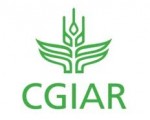The CGIAR Research Program on Water, Land and Ecosystems (WLE) has released a report that recommends restoring, rather than abandoning, salt-affected agricultural lands, with a view to maintaining their long-term sustainability.
 May 2015: The CGIAR Research Program on Water, Land and Ecosystems (WLE) has released a report that recommends restoring, rather than abandoning, salt-affected agricultural lands, with a view to maintaining their long-term sustainability.
May 2015: The CGIAR Research Program on Water, Land and Ecosystems (WLE) has released a report that recommends restoring, rather than abandoning, salt-affected agricultural lands, with a view to maintaining their long-term sustainability.
The report, titled ‘Making the Case for Reusing Saline Water and Restoring Salt-Affected Agricultural Lands,’ addresses the problem of salinity induced by irrigated agriculture, especially in arid and semi-arid regions. The authors note that crop production losses due to salt-induced land degradation in irrigated areas amount to US$27.3 billion each year.
The report contains eight case studies with examples of how salt-induced land degradation has been reversed in ways that benefit smallholders, women and minorities. The authors suggest ways that saline water can be recycled and reused, rather than disposed of. They argue that salt-affected lands should be restored, rather than abandoned, noting that such efforts would not only improve levels of agricultural production, but would also lead to environmental gains by limiting the expansion of current agricultural lands.
To address land degradation in the long term, the authors call for going beyond farm-level solutions to take into account water availability and quality, bioenergy production strategies and national water and food security priorities in the context of comprehensive planning at the river basin or country level.
The UN University (UNU) Institute for Water, Environment and Health; the Food and Agriculture Organization of the UN (FAO); and the International Center for Agricultural Research in the Dry Areas (ICARDA) and the International Water Management Institute (IWMI), both of the CGIAR Consortium collaborated to produce this report. [Report Web Page] [ICARDA Home Page] [IWMI Home Page]